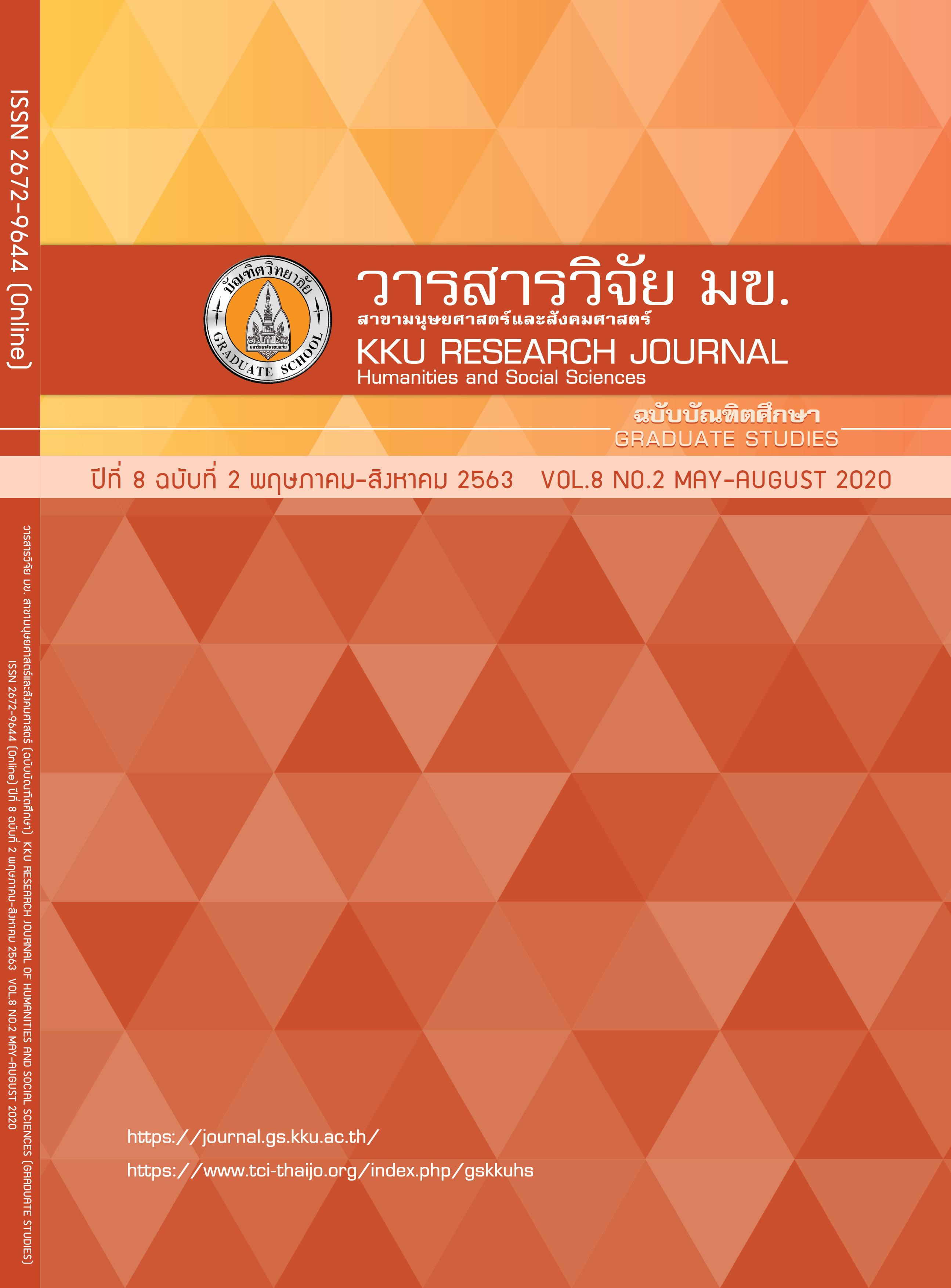The Study of Grade 5 Students’ Problem – Solving Thinking Skills and Learning Achievement in The Social Studies, Religion and Culture Learning Area Using The SSCS Model
Keywords:
Problem - solving thinking skills, Learning achievementAbstract
The objectives of this study were to 1) study grade 5 students’ problem solving thinking skill through problem solving thinking (SSCS) model with the condition that at least 75 percent of the students must get an average of 75 percent and 2) learning achievement through problem solving thinking (SSCS) model with the condition that at least 75 percent of the students must get an average of 75 percent. This study implemented a pre-experimental design in a form of a single group post-test design (One Shot Case Study). The research instruments included 1) 8 lesson plans employing problem solving thinking (SSCS) model 2) problem solving thinking test and 3) learning achievement test. The collected data were analyzed for mean, standard deviation (S.D.) and percentage.
References
B.E. 2551 (A.D. 2008). Bangkok. Agricultural cooperative printing
demonstrations of Thai; 2008. Thai.
2. Phabsimma T. The Development of Learning Activities Focusing
on Mathematical Problem Solving Skill/Process on Fractions in
Mathayomsuksa I. [MMath Thesis]. Khon Kaen University; 2006. Thai.
3. Pizzini, L., Shepardson, P., & Abell, K. (1989). A rationale for and
the development of a problem solving model of instruction in Science
Education, Science Education, (75), 523-534.
4. Moonkhum S. Creative teaching strategies. Bangkok;
Parbpim; 2004. Thai.
5. Wonggert J. Learning management using SSCS model.
Available from: http://c4ed.lib.kmutt.ac.th/x-classroom/ ?p=879
6. Sirirungrueang, S. Effects of Learning Activities by Using SSCS
Model on Ability in Learning Mathematics on “Application of Linear
Equations with One Variable”of Mathayomsuksa Two Students at
Benchamatheputhit Changwat Phetchaburi School. Master of Education
Thesis in Teaching Mathematics, Kasetsart University; 2011. Thai.
7. Rukdaun U. Effects of Teaching by Applying SSCS Model on Learning
Achievement and Efficiency in Solving Problems of Prathom Suksa V Students.
[Mater of Education Thesis]. Khon Kaen University; 1999. Thai.
8. Damsuwarn W. The relationship between scientific creativity and
an ability in problem solving of prathom suksa six students. Master of
Education Department of Elementary Education Graduate School,
Chulalongkorn University; 1986. Thai.
9. Somsa, I. Effects of Teaching by Using SSCS on Problem Solving
Ability and Attitudes Toward Mathematics of Prathomsuksa Four
Students. Master of Education Thesis in Curriculum and Instruction,
Pibulsongkram Rajabhat University; 2006. Thai.
10. Sumano, S. The Study of Mathematics Ability in Solving Word
Problems on “Percent” of Prathomsuksa Six Students by Using SSCS
Model at Watnongkhaem (Saharatburana) School, Bangkok. Master of
Education Thesis in Teaching Mathematics, Kasetsart University; 2011. Thai.




